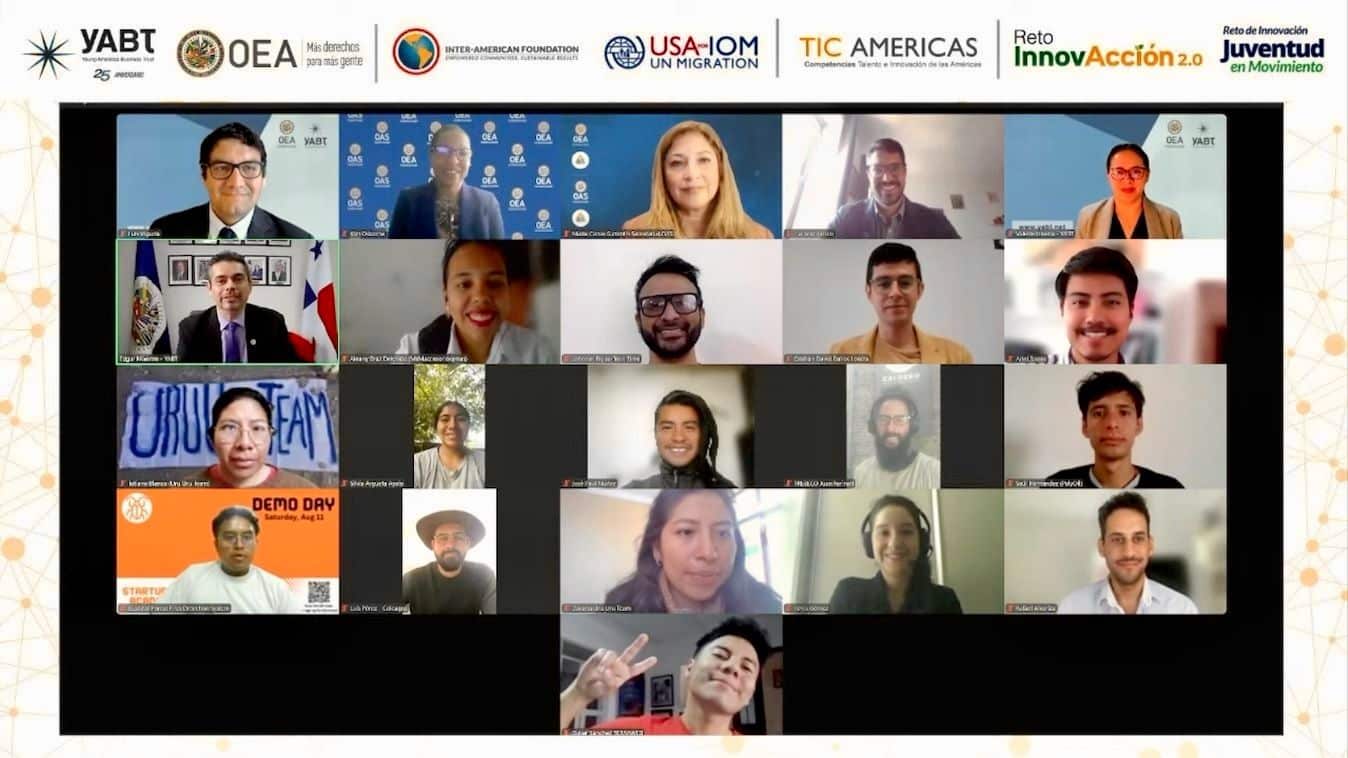
- admin
Regional Youth on the Move Innovation Competition Benefits Migrants and Host Communities in the Americas

Speakers and young entrepreneur finalists of the Youth on the Move and InnovAction Challenge 2.0, during the opening of the Talent and Innovation Competitions of the Americas, held on International Youth Day, August 12, 2024
Finalists of the “Youth on the Move” Innovation Challenge, in Ecuador and Peru, shared the positive impact of their business ventures during the Talent and Innovation Competition Americas 2024. During the live on-line event, finalists expanded upon their pitches in competition for seed capital and further mentoring and support.
The 2024 challenge, which offered start-up and business mentoring and training to hundreds of participants, concluded with a final event held on August 12-13 in commemoration of International Youth Day. The event included expert speakers on sustainability, climate resilience, entrepreneurship and digital transformation.
The Youth on the Move Innovation Challenge is designed to accelerate innovative ideas and new business models that facilitate the socioeconomic integration of migrants. The challenge supports young migrant entrepreneurs to strengthen their businesses and positively impact their communities. The focus is on the integration of Venezuelan migrants residing in Ecuador, Peru and the Dominican Republic.

The competition, organized by Young Americas Business Trust (YABT/OAS), is supported by USA for IOM and the Citi Foundation.
With nearly 700 start-up business submissions from Ecuador, Peru and Dominican Republic, selection of the finalists was highly competitive.
Finalists received $500 USD in-kind support, one month of mentoring, strategic local and regional connections to support their growth, and participation in YABT trainings and events. Together with these benefits, the winner received $2,500 USD seed capital, in-kind support of $1,500, further focused mentoring in the next steps of entrepreneurship, and visibility and follow-up support from YABT.
The finalist businesses included:

Founders of ECOSOS, Gian Walter Arbañil and Ángela Morales engage in sustainable vertical agriculture that empowers Venezuelan migrants and nourishes communities. ECOSOS innovates in food production with aeroponic crops, recirculating irrigation, thereby reducing water usage and eliminating pesticides.
It offers organic, nutritious and chemical-free foods and promotes sustainable business models that integrate Venezuelan migrants through training in agricultural techniques, promoting sustainable business models, benefitting food security and the environment.
Created by Aleany Diaz, MsM Accesories y Más (accessories and more) in Peru is a company that takes responsibility for each accessory they produce. All products are made by hand with hypo-allergic material for any type of body pH, which allows greater durability and lifetime for each piece. The company aims to contribute to the health and well-being of its customers and aims to prioritize socioeconomic integration.


Winner – Tesis Time (Ecuador)
Johnniel Rojas, winner of the Youth on the Move Innovation Challenge, a Venezuelan living in Ecuador, started Tesis Time, Transforming thesis creation around the world. The endeavor aims to improve people’s living conditions by supporting their professional and personal development and their societies, through education and access to employment.
“I came up with the idea to develop an app to learn scientific investigation methodology. We launched the app in Ecuador and later realized this was an issue for people all over Latin America. Our app has been downloaded over 40,000 times in different countries in Latin America. 35,000 students have used our learning methodology, and we’ve helped them graduate and accelerate their degree process, improving their insertion in the job market. Currently, 3,000 students use the app each month. There are over 3,000 hours of content.”
Johnniel explained the concept behind the app: “I was always a slow learner. My mother had a very creative way of helping me study, we would paint, sing, or draw to learn and study. Once I was in college, facing the scientific investigation methodology, I found myself going back to my mother’s empirical methods to be able to understand. This is the base for the teaching methodology of Tesis Time.“
“After launching the app we realized that most of the users were part of vulnerable communities in Latin America. Education is a way to change your reality and climb out of poverty. This has motivated us to develop programs to improve the user’s professional skills. Our next step is creating an educational section on the app where migrants can improve and develop their professional skills in their host communities.”
“Throughout this process, we have seen how each of you has channeled your creativity and passion into projects that not only have the potential to transform your own lives, but also to positively impact your communities and the lives of those who need it most. This journey has not been easy, but your presence here today is a testament to your ability to overcome challenges and turn obstacles into opportunities…”
Luciano Arroio
Interim CEO, USA for IOM

“Together, we can continue to face different challenges to create opportunities and build a better future collectively.” – Valerie Lorena – Executive Director, YABT
The Talent and Innovation Competitions of the Americas (TIC Americas) engages specialists from around the world, who offer knowledge and experience to the entrepreneurial youth of the Americas. The effort connects young entrepreneurs and national and regionalorganizations into a community of actors supporting youth development and exchange, to generate an entrepreneurial spirit and foster innovation and leadership in young people. For the 2024 trainings YABT joined the efforts of InnovAcción and Youth on the Move, to provide a wider breadth of resources.
The program involved multiple on-line bootcamp entrepreneurship training sessions, including:
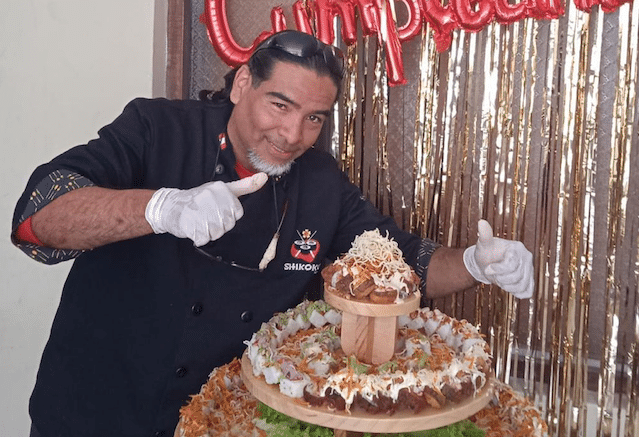
- admin

Jose: "My job is to create dishes that fusion cultures."
José Antonio Bustamante Ortuño is an accountant who managed restaurants in Venezuela. For three years now, he has created a true fusion of cultures through recipes and original meals from his business: Cheo Fast Food.
José is convinced that sometimes life guides us on a path quite different from the one we envisioned, but these detours can lead us to our true destiny. Fifteen years ago, he achieved a seemingly impossible goal, moving to Australia where he unexpectedly ended up studying international gastronomy. This training served him in ways he had never imagined when he decided to migrate to Peru with his family. Although he anticipated challenges establishing his food business, the most difficult obstacle would be having to start over as he adjusted to a new culture. “Thanks to IOM”, he tells us, “I was able to sustain the business and move forward. They helped me and trained me to promote my entrepreneurship, because due to the pandemic, my business was paralyzed, to the point that me and my family of two children, my wife and mother-in-law, were left on the street. I have to say that, even with that incredible help and training, it took us a year to start and get to what Cheo Fast Food is today.”
Cheo Fast Food combines Japanese gastronomy recipes with Peruvian food, using the indigenous products of the region, such as pisco or quinoa, with original sandwiches of his own creation. The business caters to what the people of the host country like, while also attracting customers of other nationalities who choose to live in that Peru. “But always taking of the typical ingredients and gastronomic resources of Peru”, he shares with us. “It’s not easy to sustain a business in a country where there are always new things to discover, but today I feel proud of my creations and of being a person who is dedicated to investigating everything that this country contributes that is healthy, original and innovative in the field of gastronomy to merge it with typical recipes from other cultures. Always with a completely healthy and artisan style of cooking, such as whole meal bread made with sourdough and highly nutritious Peruvian flours directly from origin.”
For José, there is a clear difference in his business model before the aid and training provided by IOM, and after he completed the program. Learning how to enhance his business organization, how to produce profits, and how to best invest in products proved invaluable lessons as he seeks to grow his venture. “I would also like to highlight the importance of mentoring for personal and professional development. They are an essential accompaniment to recovering the strengths we had when we made the decision to change countries. I was lucky enough to be able to do both editions, and the truth is that sometimes because of work I think I don’t need it, or not realize to what extent the state of mind influences the resistance and creativity that I put into my business.”
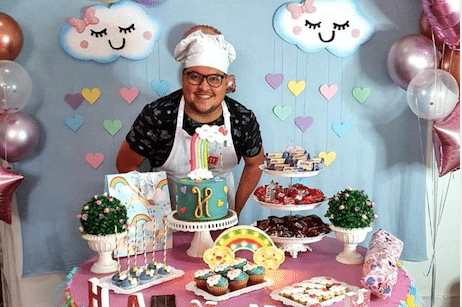
- admin

Axel: "It's not always what happens to us, but how we deal with it."
Axel Rafael Galanton Noriega is the creator of a company based in Lima called Delichef, specializing in artistic confectionery, a wide variety of foods and breads. An entrepreneurship that was born four years ago but began to take shape inside him when he was on vacation in Mexico and saw the incredible range of opportunities for creative cuisine outside his country. It was then that he decided that it wouldn’t take long for him to find the right place to make his passion for cooking his true profession. The vision was realized one year later, the chosen place: Peru.
Noriega faced multiple obstacles and difficulties during this process, although what was most difficult for him was undoubtedly feeling at home as a foreigner. “Anyone would think that if the economic issues are resolved, one is already integrated. It’s partly true, although those of us who emigrate always carry the responsibility of collaborating with our family, so solving the financial situation is not so fast either. But integrating is something else, we also need help with that, because our business can prosper, but without the help I received from IOM, with its training programs and the seed capital, I think it would have been more difficult for me to integrate”.
For Axel, it was this help that allowed him to organize his ideas and focus on what was truly important: interacting with the new community to which he now belonged. He used the IOM training to meet this challenge. He felt strengthened by the sessions of mentoring for professional and personal development, which enabled important advances that served to promote his entrepreneurship. “Since the first mentoring sessions, I have experienced a feeling of peace, which I knew very well where it came from: for the first time I was aware that it is not what happens to us, but how we deal with what happens to us. Also, to feel that things do not happen only to us. Often, when you start a business, you may feel overwhelmed by events, but the truth is that just as we learn marketing strategies or economics to develop a business, in the same way, we must learn to free ourselves from the thoughts that don’t serve us, and use those that make us feel passion for what we do as gasoline. This is the only way we can move forward.”
For this young Venezuelan entrepreneur, the key pillars at the center of his young company will guide his path forward. “I realized that I needed to focus and organize my ideas, which, although they were correct, did not follow a work pattern, something necessary although there is a lot of creativity at stake. Another thing that I began to conquer is giving myself a space to start learning, no matter what because what I get is time for myself and nurturing my creativity. Many times, we get so stuck in our business that we feel we are lost, but if we stop, look around, get some air and continue, everything improves. And finally, I am learning to develop patience and to understand that achievements are not always immediate, but if you do your best, they always come.”
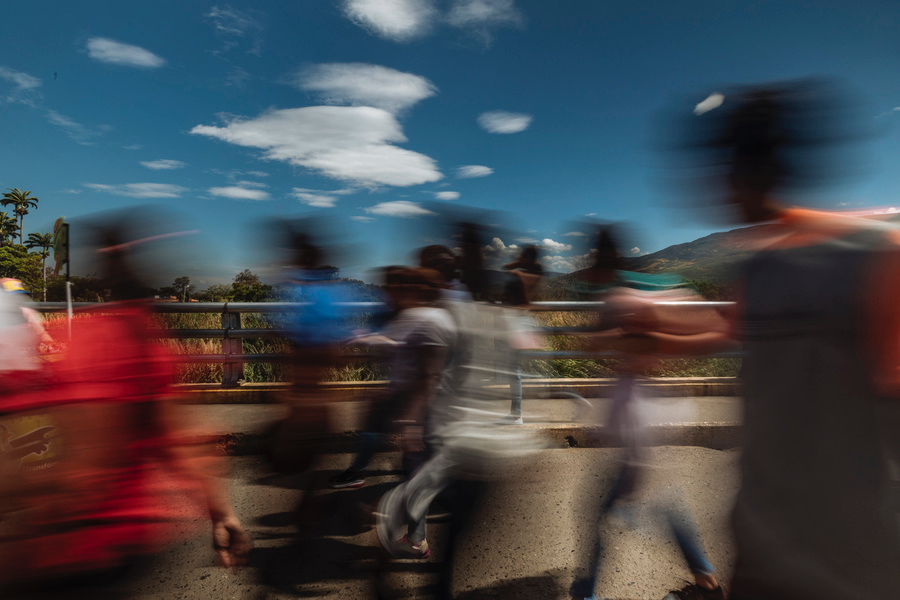
- admin

Ronald: "When you arrive to a new country you ned people to trust you"
Ronald Silva is an expert in soil science and crop production born and raised in Venezuela. When he made the decision to migrate to Peru, he struggled to find his place in this new culture and economy. After five years in his new country, Ronald and his wife decided together that starting his own business was the right path forward. After considering different options, he saw a fantastic opportunity in making and selling cuisine from his native land. He started making traditional tequeños, typical appetizers of Venezuelan cuisine and the dough for empanadas, as cuisine of the country where he was born was gaining fame beyond its borders.
At first, Ronald sold the food ready-to-eat, but when his frozen menu gradually expanded, he decided that this was the future of his business and wished to put all his knowledge and energy into expanding his frozen food customer base. Yet he still struggled to adapt to his new culture, and to form the meaningful connections needed to become a successful entrepreneur.
Ronald struggled with financial stability as he sought to expand his business, “But there was OIM,” he shares with us, “helping and empowering. I confess that with the way of thinking that we brought from having migrated, it was difficult for me to process the idea that there were opportunities for people who came from other countries. But I understood that we could only get ahead if we learned to use the necessary tools to be autonomous. It was not just about our willpower or race. What the new culture did we had to do as well: then the pieces began to fit together, and the entrepreneur who had always been in me then put together the puzzle. Every entrepreneurship idea has a “how”, a “what for” and a “why”, which must necessarily be known.”
He now runs his frozen food business, Ronnytequeños, from Lima and says access to mentoring aimed at personal, professional, and social development was also “a real discovery”, he tells us. “The whole block of mentoring made me understand -session by session- that on many occasions we perceive ourselves as stagnant when something goes wrong, when the accounts do not add up, when we have to decide on an issue, is because we don’t focus where we should.” Today Roland’s business is very different from what he and his wife had originally conceived, and although they still have a long way to go, he insists: “We will always be infinitely grateful to our mentors, for showing us the way to commercial success, from the implementation of key skills in finance, marketing, product, tax issues, but above all because of the trust they helped us gain. Because that’s when you feel that you will be able to achieve your dreams, your goals, and you start to believe in yourself, and you take more steps toward the right direction.”
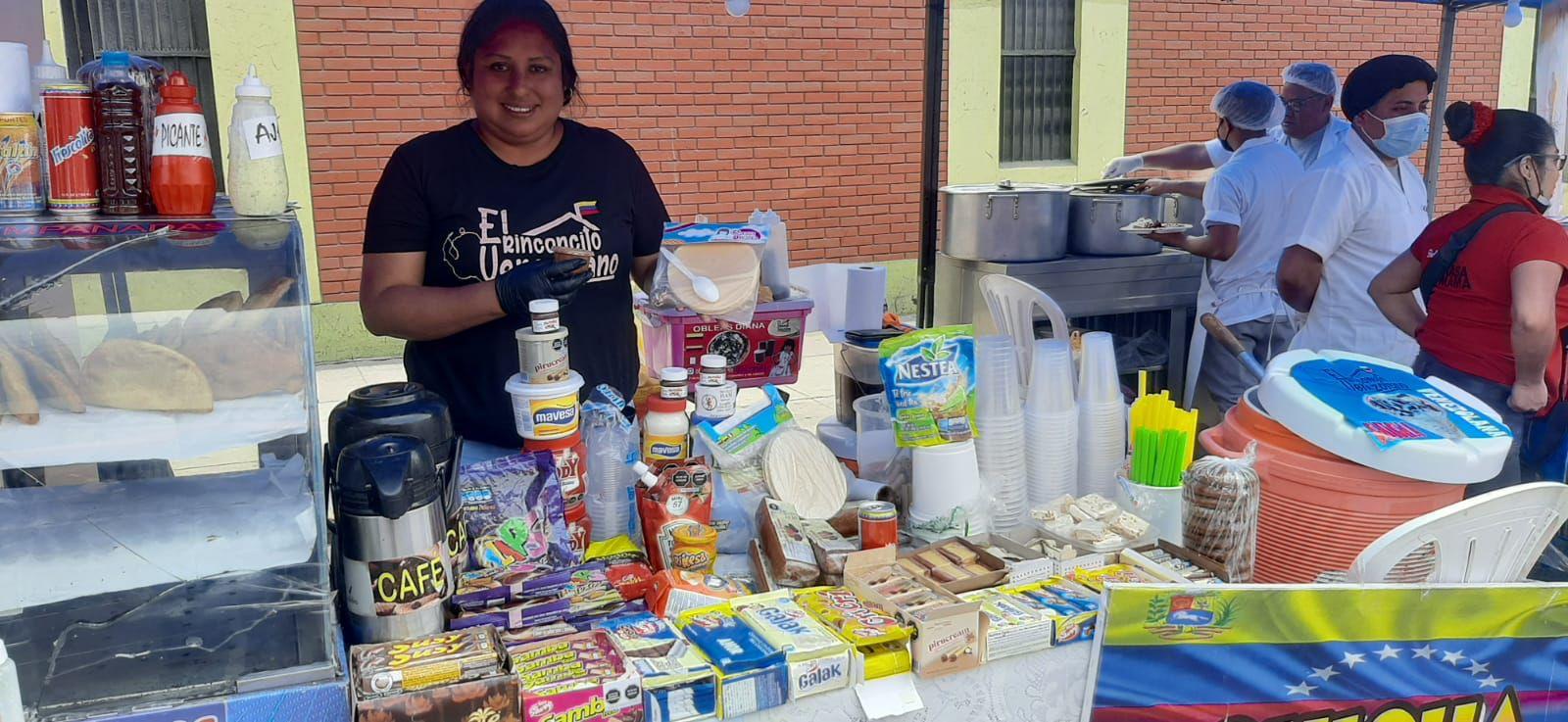
Dayana: “Sometimes life’s ironic”
- admin

Dayana: "Sometimes, life's ironic."
Dayana Rojas, was born in Venezuela, and currently lives in Peru. Dayana tells us: “My ancestors are Peruvian, so we are two generations of migrants between the same countries. This makes everyone in my family feel that we have a double culture because we identify with both nationalities.” According to Dayana, her entrepreneurship has a long history that began when her parents made the decision to return to their country from Venezuela after 43 years. The yearning to return home led this chemical engineer to leave an excellent job in one of the main petrochemical companies to migrate to Peru, although it took a full year to complete the journey. In 2018, when the family was reunited in Peru, Dayana decided to start selling the same confections her father sold back home, Venezuelan chicha. She bought the necessary tools and equipment to make this very familiar treat which is a drink containing rice, milk, sugar and a vanilla base. It requires a two-day production process to achieve the perfect chicha.
“Life’s ironic,” she tells us with a smile, “my father, a Peruvian who learned to prepare the rich and delicious Venezuelan drink, raised his three children in Venezuela thanks to that product, and years later, I do it in Peru”. But for this engineer-turned-entrepreneur, her passion goes beyond chichas. After selling Venezuelan delicacies on the beaches and in schools, in December 2018 she decided that it was time to gather all her products into a single brand focused on Venezuelan gastronomic culture, so she created a name that encompasses everything. Thus, Rinconcito Venezolano was born. The restaurant not only offers empanadas but also small wafers and candies from her country of origin, even sweet sandwiches, desserts and souvenirs. For Dayana, the mentoring for personal and professional development provided by IOM was much more than just support.
It came just at the time when she needed them most. “There were days,” she tells us, “When I would feel so low that I would sit down and procrastinate. I convinced myself to believe that later I would do my duties, but nothing, I had nowhere to get strength. It was as if inside I had never had passion, desire for change, or desire to grow professionally, in short: as if I had never had resources. And worst of all, I felt terribly bad seeing how time was running out for me. After the mentoring, I was able to realize that I was afraid of failing, and it was not something trivial, because the truth is that one of my biggest flaws is perfectionism. Sometimes I think that I do not carry out all my ideas, I am so afraid that it will not turn out perfect that I don’t do it, then I enter a kind of vicious circle, and how does that end? Running out of strength! I am grateful to IOM for the opportunity of joining the mentoring sessions, I keep moving forward, and I manage to do it as I used to, achieving what I set out to do, taking advantage of two of my main strengths: enthusiasm and passion.”
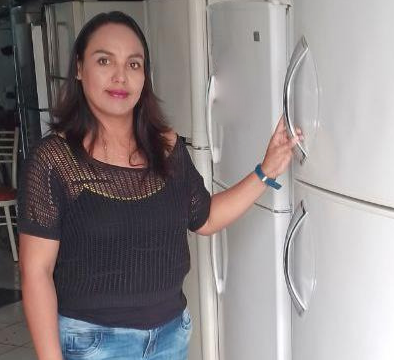
- admin
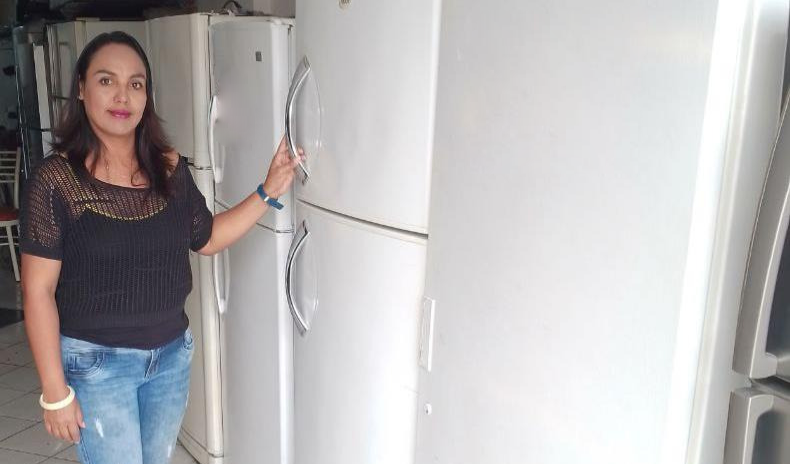
Yexira: a woman entrepreneur working hard to live a better life
For Yexira Yalili Salazar, the four years she has been in business with her partner have been a quite a challenge. The company Multiservicios y Repuestos Construfrío 36, which today has its premises in Lima began “with just a briefcase of tools, a lot of will, perseverance and desire to excel”. In terms of material things, they didn’t have much, except “an alliance between a Peruvian and a Venezuelan, where each one, little by little, contributed new ideas and material and economic resources.”
For Yexira, the only thing that kept them going was faith and the hope that things would improve along the way, a certainty that began to take shape in their country of origin when the economic situation in Venezuela became very difficult. The situation prompted her to move to Peru with her family in 2018 to start a new chapter. “We sold everything we had. Somehow, deep inside me I knew that there was no going back, that it would be a journey that was as long as it was definitive. Fortunately, we were well received” she says, “because I couldn’t work, my three-year-old son was sick with asthma for six months and with a complicated health condition…”
It was not until a year later, through USA for IOM’s training programs for entrepreneurs, and after having acquired the first seed capital, that the business began to improve and to incorporate new services. “In 2020 and 2021 we had other trainings led by IOM and more seed capital,” she tells us. “We were so happy with this new training, we were able to incorporate new business expansion tools, such as identifying potential customers, assessing the competition, suppliers, we learned to do market research, to manage social networks… To say that we are deeply grateful to the whole IOM team isn’t enough. Then came the mentoring sessions, which gave us tools to strengthen ourselves, where we learned personal development strategies, social and professional growth tools to contribute the best of ourselves to the host community. But they were also important as a woman and a migrant, since I have experienced inequality in my own entrepreneurship and work environment. This was the biggest and most enriching challenge I have had in my life because I have learned to improve my self-esteem, to make different decisions and most importantly: to continue looking for new opportunities that improve my well-being. One of the most valuable things I learned during the mentoring is to shape my life with the resources that I have at my disposal, in the place where I am, and with the opportunities that I can get, with the sole goal of being happy and having a better quality of life.”
By: Nora Rodriguez
Essayist and CEO of Architects of Happiness

Female migrant leaders advocate for female migrants
- admin
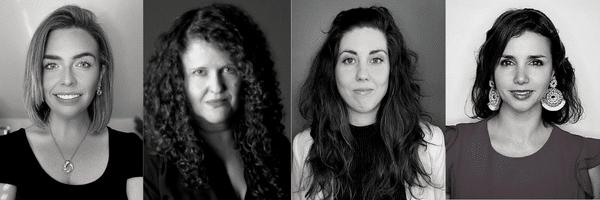
Female migrant leaders advocate for female migrants
The face of migration is changing. Over the last century, millions of people were forced to leave their countries of origin, with women following male relatives along the journey. Today, women outnumber men along most migratory routes, with many traveling alone. This makes them more vulnerable to the predatory forces along the
migration routes. This new scenario requires not only a profound reconstruction of the host societies, but also new perspectives will help provide more meaningful assistance and promote action.
To commemorate the International Migrants Day on December 18, USA for IOM held the first “Meeting of Migrant Women Leaders”, during which our CEO, María Moreno, spoke with global female leaders who left their country of origin. The event, moderated by the essayist and CEO of Architects of Happiness Nora Rodríguez, included the participation of Dr. Nadia Szeinbaum, Innovation Scientist at Beyond Meat, and former NASA fellow, and Liliana Mor, Director of Strategic Alliances and Development of Pro Mujer.
Hosting conversations with female leaders who themselves migrated is key to understanding the femiznation of migration. Dr. Nadia Szeinbaum discussed ways to better integrate migrant women into the host countries. “What I know about my culture,” she mentioned, “has a certain flavor, a very particular color that is Hispanic, Latin American, focused a lot on connecting with other people, on my music and my technical ability, so when I felt exposed to many cultures, I started learning from them. This allowed me to understand their codes, pay attention to details, and also learn to work from that place.”
For María Liliana Mor, Director of Strategic Alliances and Development of Pro Mujer, it is urgent to launch collaborative work between the countries to incorporate means and resources that make migratory routes safer places, but also to provide human accompaniment to make creation of new roots a common goal, for example, through supporting entrepreneurship for refugee and migrant women.
Both María Liliana and Nadia recognize the importance of a global talent characterized to a considerable extent by the impact that migrating had on their lives, characterized by the social sense, the commitment to personal values to advance in decisionmaking and a great adaptability and ability to connect with truly diverse people, which is a common denominator in most people who migrate.
The essayist and CEO of Architects of Happiness Nora Rodríguez, who moderated the event, and who works as a social mentor in the USA for IOM’s Entrepreneurship in Movement program, emphasized the importance of finding these skills and talents in each of the stories of women who migrate because they are the starting lines to build a new life in another place.
In closing, María Moreno urged both leaders, from their deep understanding of the fundamental values of the global community, from their own sensitivity to human and social needs, to share a message with migrant women directly. Both women agree that preserving cultural ties while working to build a new life is critical to success and mental health. “Your family is the world,” says Szeinbaum. “And I say this from personal experience,” adds the Director of Alliances for Pro-Mujer, “there are moments when you feel like you are someone else and you yearn for certain things. And a family doesn’t necessarily have to be a biological one.” Migration isn’t about severing connections, but rather about building new ones.
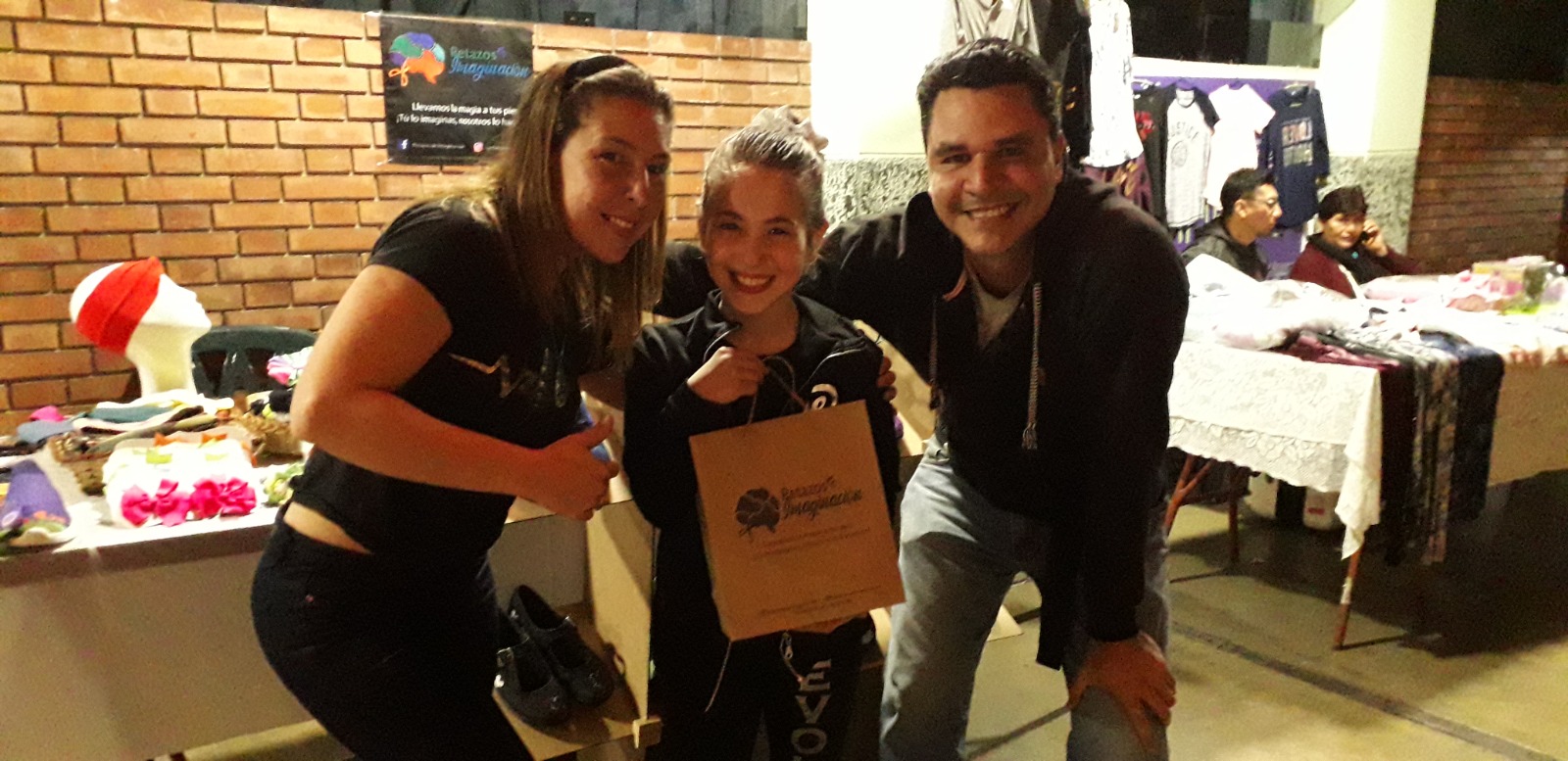
Imagining Something New To Learn And Start Again
- admin
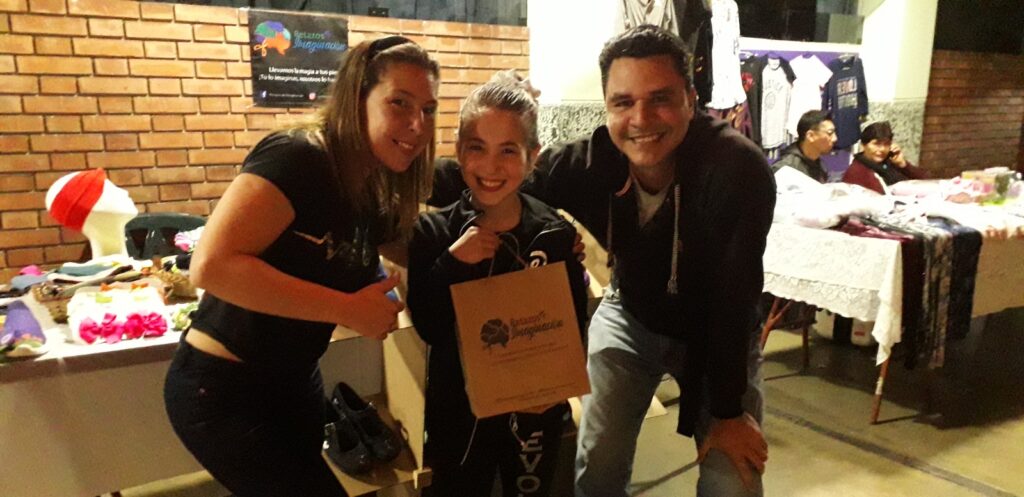
Imagining Something New To Learn And Start Again
When Scarlet Pambianchi decided to take the step of migrating, she did so with great expectations, although she was aware that it would not be an easy path. From the first moment, her inner drive was to give her family a better future, which obviously included financially helping the people who had remained in the country of origin. Although her first destination was Mexico, the unexpected accident of a relative and her complications disrupted all her plans, so she decided to change her destination to Peru, where she wanted to create her own company.
Since her specialty is artistic gymnastics, a friend of hers offered her and her partner to move to the city of Lima to work in the sports area, with an interesting economic offer. But when they arrived at their destination, her promise was diluted, and after discovering that nothing was as she had been promised, she decided to focus on the idea of creating an entrepreneurship with more persistence.
Scarlett was aware that her own business had to be something as necessary as it was original, so when she saw clearly that her entrepreneurship would be focused on handmade footwear, her project began to take shape minute by minute. She tells us how even starting from the ignorance of her field, the exploration was fascinating to her, since it united those components that are fundamental for her: illusion, imagination and creativity. However, she and her partner soon realized that they needed training to really shape the business idea they both had.
“And IOM has been a blessing with its comprehensive training, from how to start and improve a business, to financial education, and mentoring for socio-emotional strengthening. Because many times we think that an entrepreneurship refers only to the fact of producing, of being only aware of the financial aspect, that what is produced is everything, and it turns out that sometimes it is overlooked that, as migrants, internally we remain empty , and thus there are no forces for entrepreneurships. That’s why I appreciate the integration of mentorships so much! And not only because it made me see that to sustain a business it is necessary to start from the heart, but because I am convinced that this is the best medicine we have ever had”.
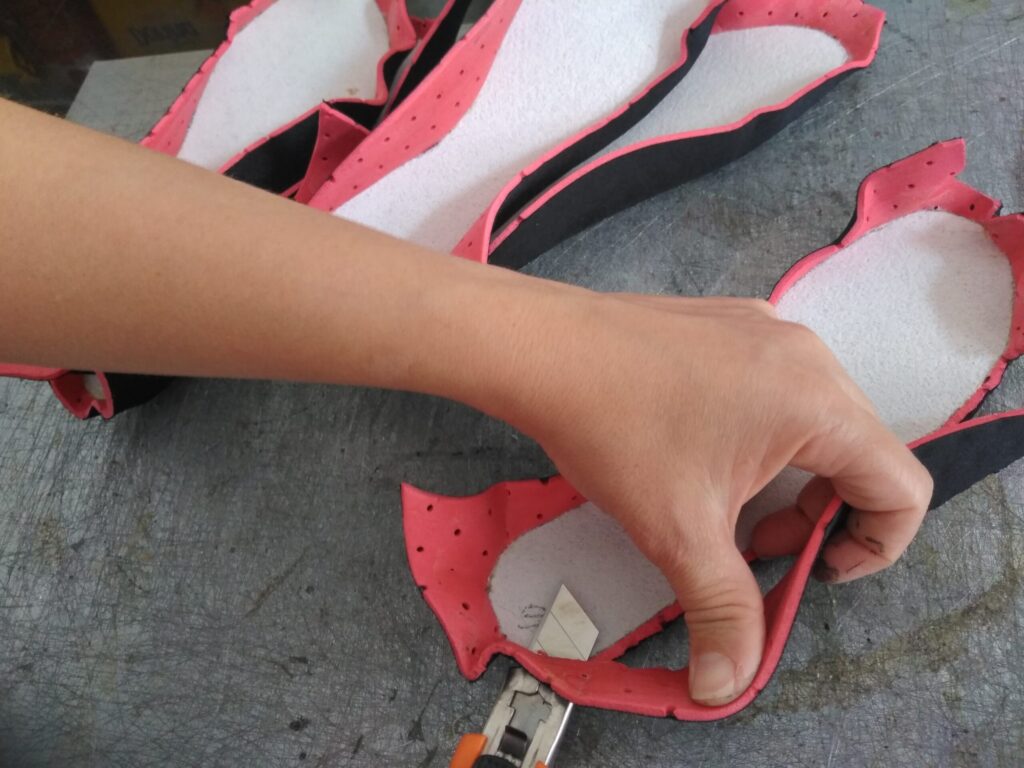
Scarlet’s company is called Retazos de Imaginacion S.A.C. It specializes in manufacturing handmade shoes with personalized designs, and it is, as its creators say, 80% handmade, but 100% impregnated with love.
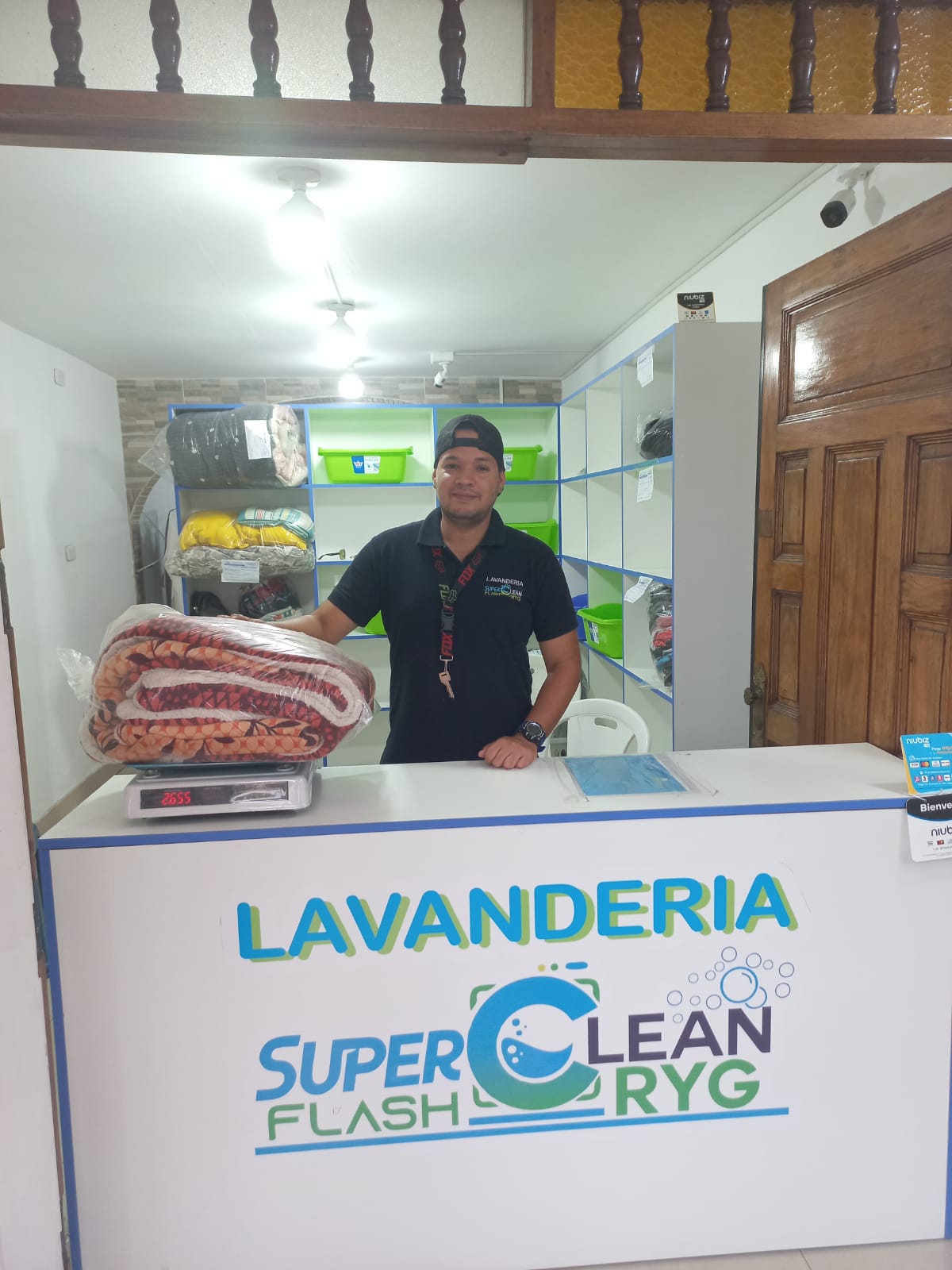
Creating Good Connections To Expand A Business
- admin
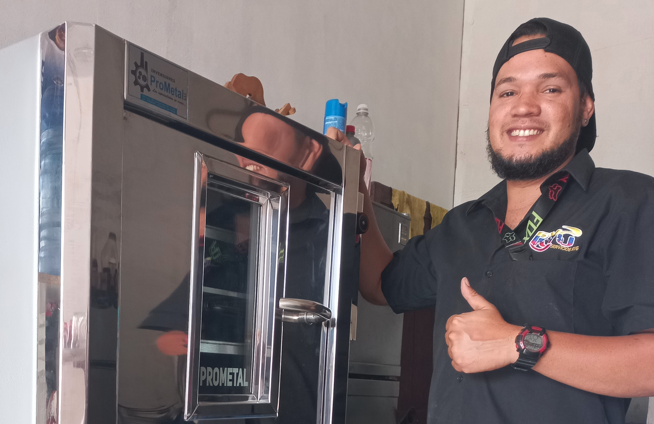
Creating Good Connections To Expand A Business
For Gustavo Alejandro Herrera, the decision to migrate was not an easy one. It took him a year of reflection to leave a large part of his family in Venezuela. From his first company in Trujillo, Cambios RYG, destined to send remittances to his country, he felt valued and respected by his neighbors, although the first few months were economically complicated. The most important thing in that early period was saving money, so for six months he restricted himself to eating practically everything, except the essentials, unlike the way of life he was used to.
Having set a goal helped him to apply it to his company as well. His growth strategy was to set small goals and meet them under any circumstances. Gustavo is convinced that entrepreneurships have to somehow show the values of its manager. That is why he wants his clients to feel that being Venezuelan has education as a mark, and he considers it essential for business.
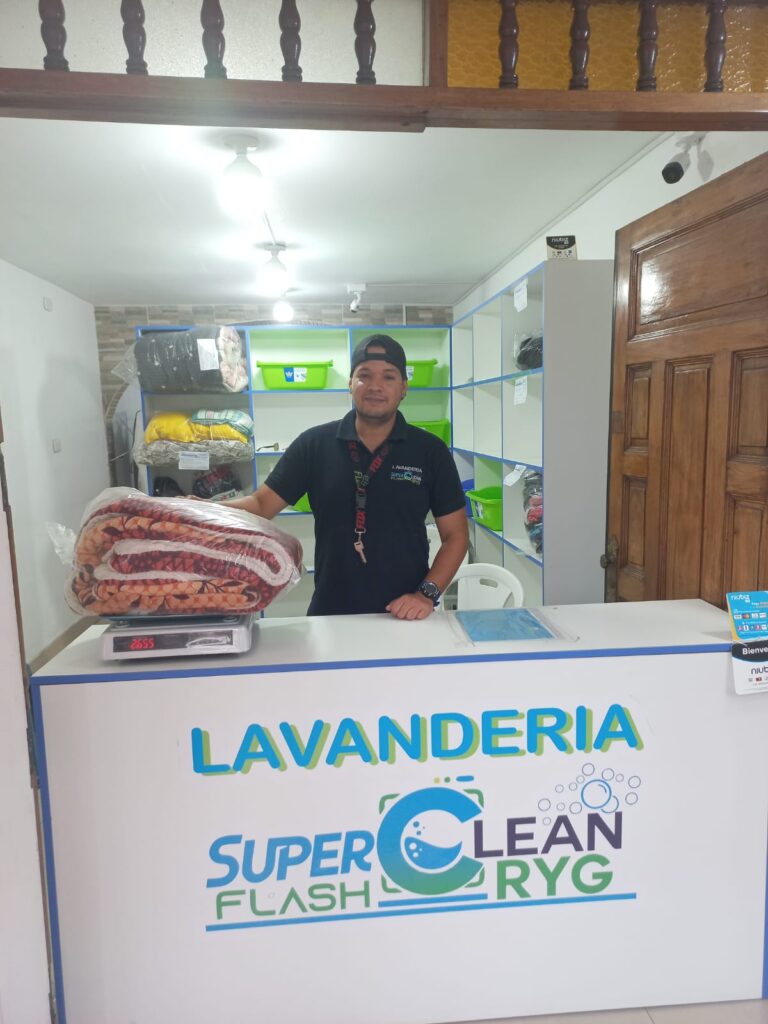
And not only because he considers that in certain areas it is not enough to work hard and make an effort, but that more values must be provided, such as honesty or sincerity. “No one likes,” he says, “when the person you give your money to send to another country doesn’t act politely and seriously. I understand how you may feel, because if I can help my family myself I will feel good, but that does not mean that I give my savings to just anyone.”
For Gustavo, joining the IOM program was the springboard he needed for basic issues such as learning how to legalize businesses in another country, in addition to other basic strategies.
However, for him it has been essential to strengthen himself to handle difficult situations, as he learned with mentoring.
“I realized that to endure a business, the strong ties that are within us are as important as the new ties with people whom you share with day to day, so I try to break the prejudices that exist with Venezuelans” .

For Gustavo, social intelligence is key for business, and he defines himself as a person willing to help, be respectful and collaborate with the people around him. He believes that this makes a difference when there are strong migration processes. Gustavo has decided to create another business that also benefits local people, so he has just opened a laundry, Lavandería Super Flash Clean RYG, and has the serious intention of opening two more soon, although “step by step”, as he says.
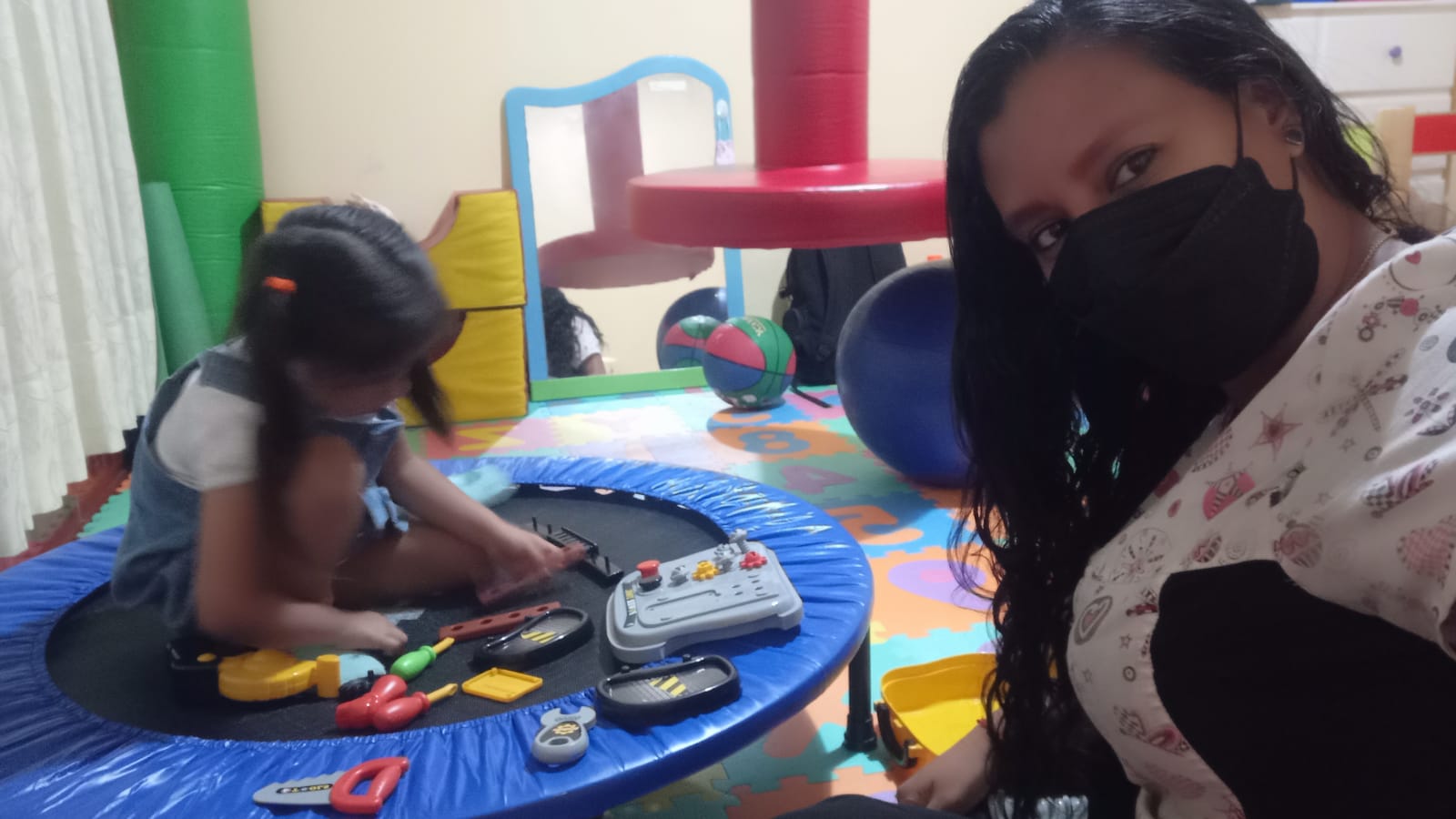
Creating An Entrepreneurship To Improve The Lives Of Others
- admin
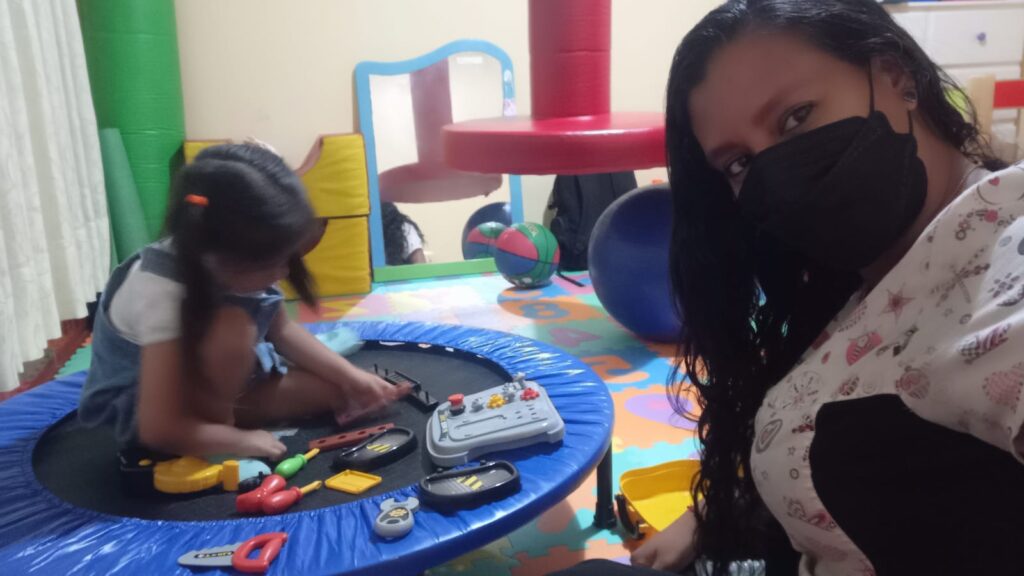
Creating An Entrepreneurship To Improve The Lives Of Others
Erika Beatriz González Correa created Therapy Dec, a business born from a personal purpose and a professional goal: to help people improve their life quality through physical rehabilitation and recovery. “When I studied Physiotherapy and Occupational Therapy, I already knew that I would do a service job, and now I have the commitment to make a positive impact in the lives of my clients, this time, in Lima, Peru”. From the first moment Érika knew that although she would have to overcome some initial challenges, such as getting her clients to trust her knowledge and experience, at a time when the mass migration of Venezuelans was increasing, she would have to continue working internally to face the fear of rejection, that it would still be there, even if things went well.
It was a Peruvian colleague who, without Erika looking for it, helped her make herself known, she helped her demonstrate that she knew how to relieve pain and rehabilitate. From that moment on, her company specialized in older adults, although the pandemic and total confinement forced her to assume the desertion of many of her clients, who could no longer seek services due to the risk of contagion.
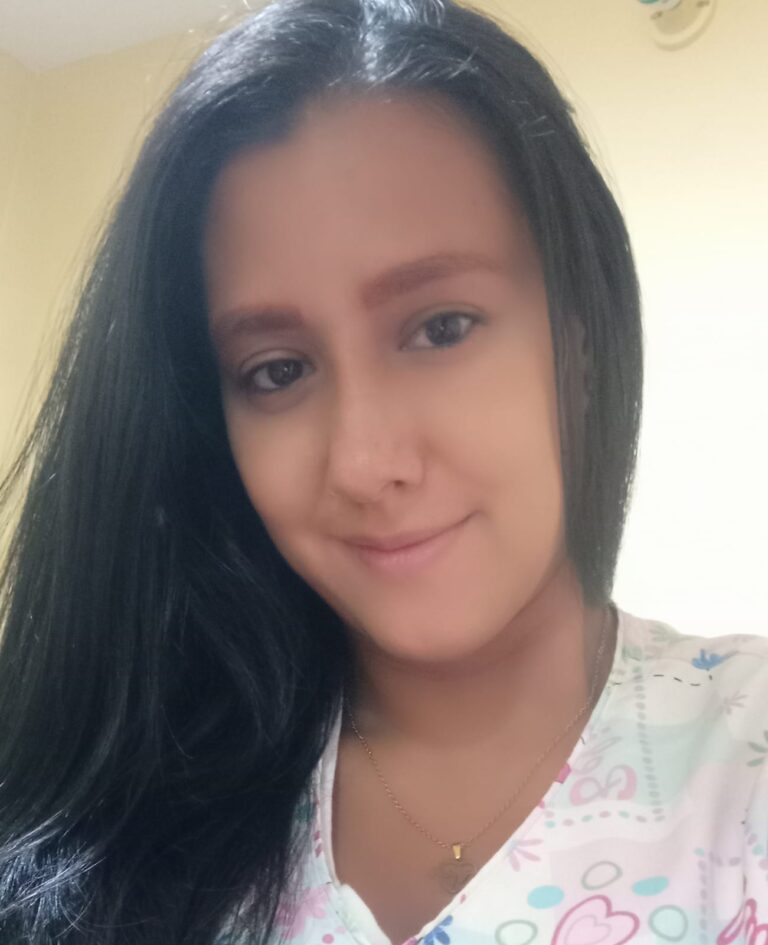
“With this pressure, I remember that I kept thinking over and over again: a Venezuelan woman in Peru, facing a pandemic with confinement like everyone else, the only option left for me was to think and reflect on what capacities I had internally to find an solution.”
Eika began to put into practice new resources, methods and strategies to unlearn everything that she felt was limiting her. “I decided to reinvent myself,” she tells us. “Simply put, I felt like the only option I had was to sell tissues to people who were crying, instead of sitting down and crying myself.”
At that precise moment, she recounts that she received one of the best gifts of her life: an invitation to participate in the IOM business strengthening program for migrants. “Who would think? In a foreign country, support was given to those of us who came from another place…” For the physiotherapist, it was not only the managerial knowledge she learned, but for her entrepreneurship, was the recognition of her values, capacities and how to strengthen their vision of caring for other human beings through mentoring.
What IOM was providing was much more than accounting or organizing. “I gained strength and personal appreciation at a very difficult time” she tells us, “but the most important thing is that thanks to it I managed to be a better businesswoman, mother, daughter, wife, and a better person every day to provide each one of my clients the best I have”. And she continues: “the mentoring provided me with so many valuable tools that seemed especially made for me, and this made me a better person, and with each client I intend to do my best so that they can feel that they made the best decision by choosing me as their therapist. I know that I not only help them recover from an injury, but that I also seek to help them from a human perspective, as life has helped me since I arrived in this wonderful country.” Today Therapy Dec continues to grow not only in clients but also generating jobs so that more people can improve their quality of life.





